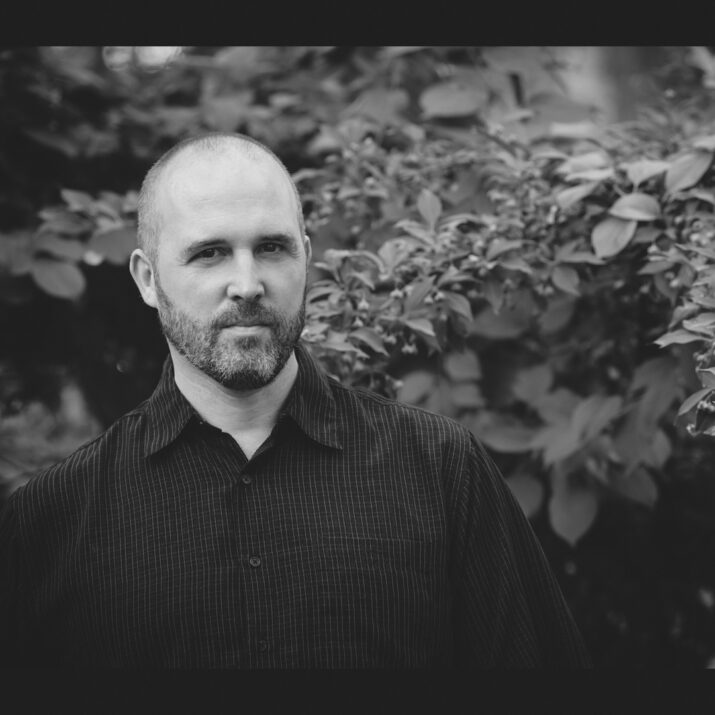
- This event has passed.
“Mop Mop” aka “Boff Boff” aka “For Big Sid”: Max Roach, Transcription, Composition, Improvisation, Rhythm, and Creativity | IMPR Colloquium: Nick Fraser
March 15 @ 1:00 pm - 3:00 pm
Free
Please join us on Friday, March 15 at 1:00 PM (ET) for “Mop Mop” aka “Boff Boff” aka “For Big Sid”: Max Roach, Transcription, Composition, Improvisation, Rhythm, and Creativity | IMPR Colloquium with Nick Fraser.
This presentation will take place in person at ImprovLab, MCKN 108 at the University of Guelph, as well as online via Zoom.
More About this Talk:
Musical improvisation is real-time invention––the creation of the new. My master’s research examined one of the most common current ways of teaching musical improvisation in the jazz education system: the act and study of “transcription,” whereby students learn other musicians’ improvised acts (usually iconic “solos” from the jazz tradition), commit them to paper (or memory). The pervasiveness of this practice was interrogated through Gilles Deleuze’s and Félix Guattari’s conception of “the smooth and the striated” and Maurice Merleau-Ponty’s work on embodiment and speech. I argued that transcription, as currently taught, privileges a type of listening that elevates individual improvised acts above group interaction and is only tangentially related to improvisation itself. Further, though jazz educators speak of transcription as a part of the process of arriving at a personal approach to improvising, by defining improvisation within such measurable models, I argued that its implementation has (in Deleuze’s terms) taken something smooth (fluid, negotiable, dialogic) and fashioned it into something more striated (repeatable, set, hierarchical). For this presentation, I will demonstrate some of the issues raised by this work, using different strategies in performances of Max Roach’s solo drum piece, “For Big Sid,” offering openings to discuss the complex intersection of composition and improvisation in musical performance (which is the focus of my doctoral research).
Musical improvisation can stand alone or occur within compositional parameters. In the mid-1960s, composer and saxophonist Roscoe Mitchell spoke of composition as the creation of an environment and made a distinction between “composition” and what he imagined as a possible “free” music. Regarding his early work, Sound, he states, “the musicians are free to make any sound that they hear at a particular time. That could be somebody who felt like stomping on the floor, well, he would stomp on the floor.” Mitchell (and many others) compose music that rejects the composition/improvisation binary, embracing a wide spectrum of intentionality where the ideas and desires of the performers can be central to the pieces––equal, in fact, to the those of the composer. In my view, too much improvised artwork hinges on the mere possibility of unexpected events, and exactly how those events play out can be viewed as incidental to the work––their occurrence can be conflated with artistic success. I believe this question to be key to writing contemporary music for improvisers––not merely “if we wish, we can stomp on the floor” as Mitchell would have it, but “if we are to stomp on the floor, how do we stomp on the floor?” If the art of improvising in music is to be advanced, and if composition within this artform is the creation of environments, those environments must be conducive to judgement and discipline, as well as to novelty and the unexpected. As the Jimmie Lunceford Band sang in 1939, “it ain’t what you do, it’s the way that you do it.”
More About the Speaker:
Nick Fraser has been an active and engaging presence in the Toronto new jazz and improvised music community since he moved there from Ottawa in 1995. He has worked with a veritable “who’s who” of Canadian jazz and improvised music and with such international artists as Tony Malaby, Kris Davis, Marilyn Crispell, Anthony Braxton, and William Parker. Nick’s recorded works as a leader include Owls in Daylight (1997), Nick Fraser and Justin Haynes are faking it (2004), Towns and Villages (2013), Zoning (2019), and If There Were No Opposites (2021). For 10 years, he co-led the co-operative group Drumheller, who released four critically acclaimed CDs between 2005 and 2013. Other projects that occupy Nick regularly are the Florian Hoefner Trio, Ugly Beauties, Peripheral Vision, the Lina Allemano Four, and Titanium Riot. Nick has been engaged in graduate studies at the University of Guelph since 2021.
“Fraser not so much plays the drums as hurls himself whole body and soul against skin and metal… truly talented.” Bill Stunt, CBC Radio.
“The Toronto drummer is perhaps a little too progressive for the hidebound Canadian scene… Fraser is a deft and sensitive percussionist with a hint of an enigmatic streak, a feeling for economical gestures, and an innate sense of form.” Mark Miller, The Globe & Mail.
To attend the talk in-person or online, RSVP via our Google Forms.







